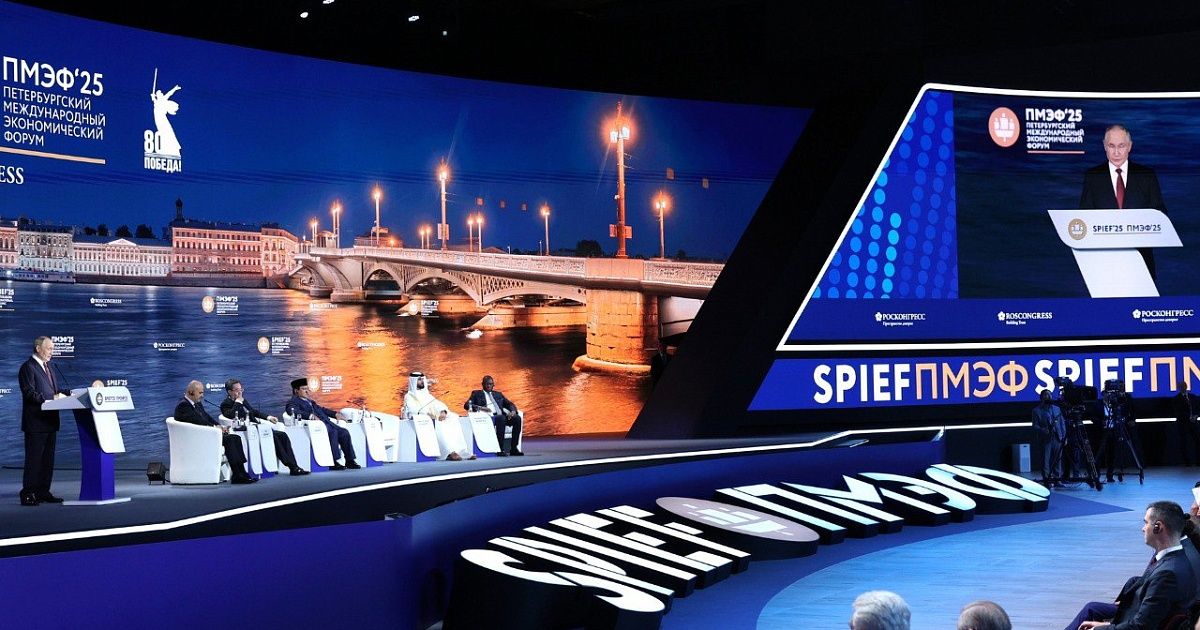
June 21, 2025
On June 19-20, 2025 President Vladimir Putin made several remarks on the current international issues at the International Economic Forum held in Saint Petersburg.
The head of the Russian Federation stressed that Russia firmly opposes any further escalation between Iran and Israel.
Putin informed that he and Israeli PM Benjamin Netanyahu agreed to ensure safety of the Bushehr NPP built by Russia in Iran where over 200 Russian experts are currently working. One power unit there is working successfully. A contract has been signed for the construction of two more power units at the plant.
Putin reiterated Russia’s support for Iran’s right to a peaceful nuclear program – stressing that this support is not merely rhetorical, but demonstrated through concrete cooperation. “We defend Iran’s right to peaceful nuclear energy not just in words, but in action,” he said. “Despite all the complexity of the situation around Iran, we built a nuclear reactor in Bushehr... And despite all the challenges and certain risks, we continue this work.”
Moscow has not been asked by Tehran to intervene militarily in the conflict and sees no reason to alter its current stance. Russian leader mentioned that Russia previously delivered AAD systems to Iran. He informed that both sides are still developing routine military-technical cooperation within international norms and regulations.
Putin dismissed criticism that Russia should have done more to support Iran. “Start some kind of combat operations, is that it?” he asked. “We already have combat operations going on against those who we consider opponents of the ideas we defend and who pose a threat to the Russian Federation,” he said, adding that these opponents are far behind the frontline.
While referring to Russian-Iranian Strategic Partnership Treaty signed in January 2025 Russian President noted that it contains no clauses pertaining to defense cooperation.
That’s correct. In Article 1 of the accord Moscow and Tehran pledged to strive to deepen and expand relations in all areas of mutual interest, strengthen cooperation in the field of security and defense, and closely coordinate activities at the regional and global levels, which corresponds to a long-term, comprehensive and strategic partnership. Paragraph 3 of the Article 3 says that: “If one of the If the other Contracting Party is subjected to aggression, the other Contracting Party should not provide any military or other assistance to the aggressor that contributes to the continuation of aggression, and will help to resolve the differences that have arisen on the basis of the Charter of the United Nations and other applicable norms of international law”.
Putin noted that Moscow has proposed several compromise frameworks to all parties, suggesting that a settlement should include mutual security guarantees – protecting both Iran’s right to peaceful nuclear technology and Israel’s right to security.
It is much deeper political remark than have been expressed so far by many world leaders. Unfortunately, some of them are inciting Israel to deliver more attacks against Iran under false allegations that it has developed N-bombs or is very close to make them.
During the phone call with Chinese President Xi on June 19th the Russian leader reaffirmed Moscow’s readiness to carry out possible mediation efforts, if necessary. His Chinese counterpart welcomed the initiative, calling it a step that could help defuse the situation. Both leaders will closely watch the developments in the Middle East.
Written by Vladimir P. Kozin



